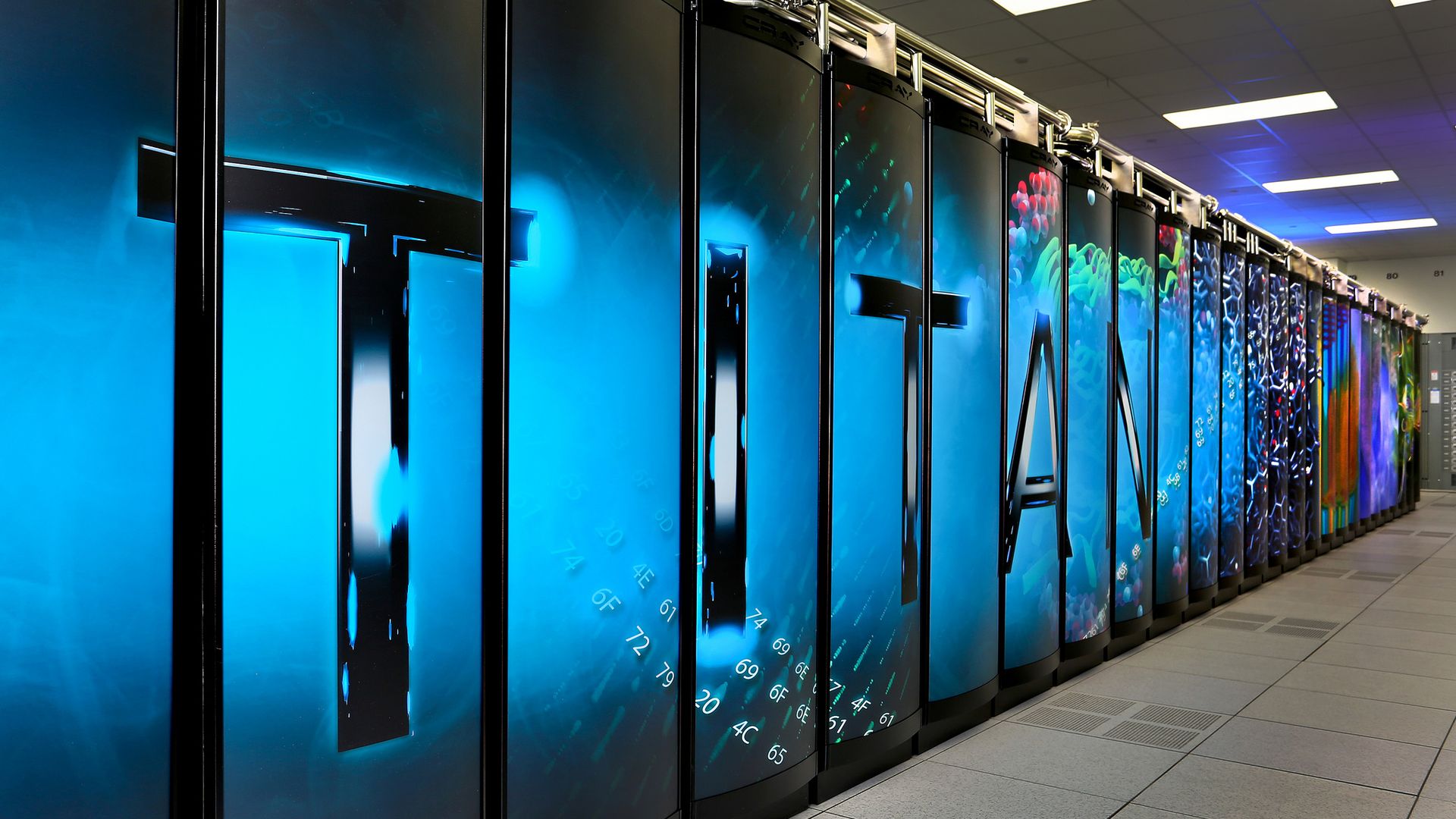Mar 18, 2019 - Energy & Climate
Meet Aurora, soon to be the first "exascale" supercomputer in the U.S.
Add Axios as your preferred source to
see more of our stories on Google.

The TITAN supercomputer at Oak Ridge National Laboratory, currently one of the most powerful such systems worldwide. Photo: DOE
